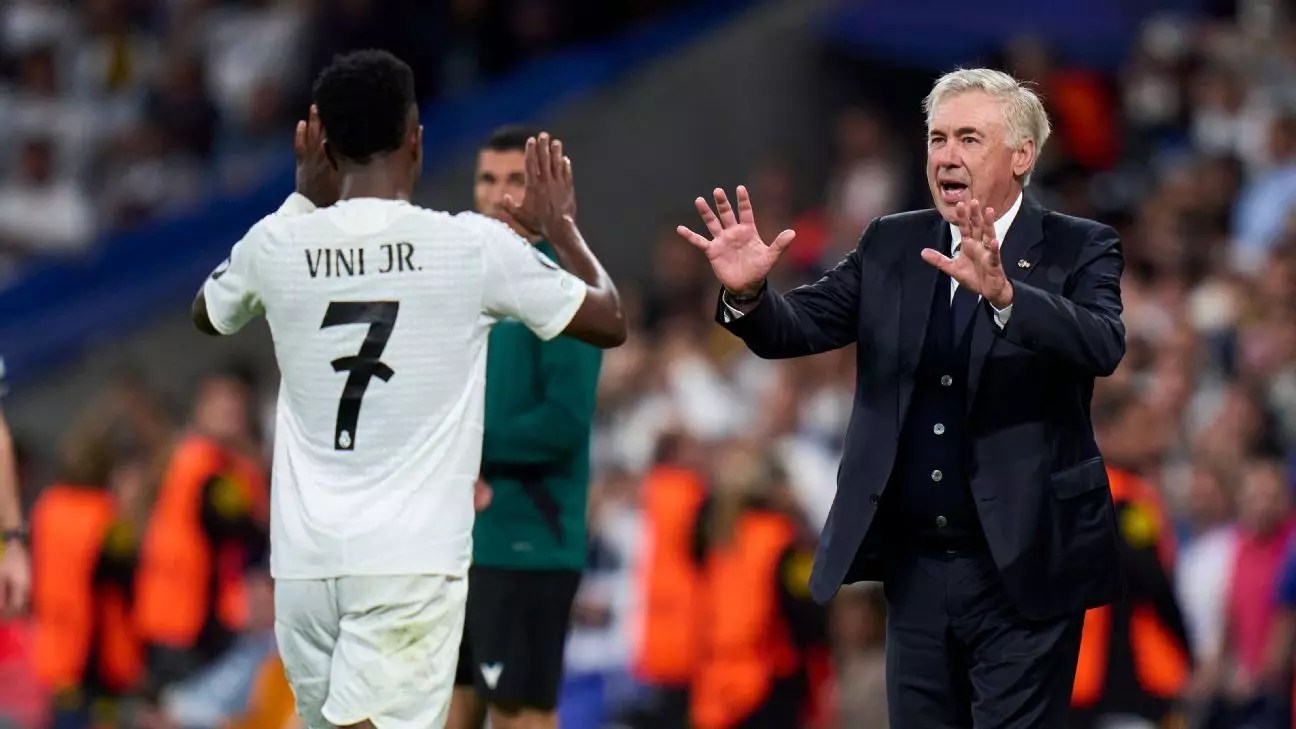Carlo Ancelotti, the esteemed head coach of Real Madrid, expresses concern over the club’s compact fixture schedule as they approach the crucial knockout phase of the UEFA Champions League. The team’s struggle during the league phase has put them in a less than favorable position, necessitating a series of high-stakes playoff games against formidable opponents like Manchester City. This situation underscores the complexities involved in managing a high-profile football club, especially when expectations are juxtaposed with the realities of player fatigue and squad depth.
Real Madrid’s performance during the league phase left much to be desired. Losses to clubs like Lille, AC Milan, and Liverpool stunted their momentum, marking a disappointing start to their campaign. Subsequently, the team clawed back with three consecutive victories, but the damage was done; they did not secure a top-eight finish, relegating them to a playoff round rather than granting direct qualification to the knockout stages. This situation limits Ancelotti’s ability to strategize effectively, leading him to lament the absence of adequate preparation time between matches. “There’s no preparation when you play every three days,” he emphasized, shedding light on the rigors and demands placed on both the coaching staff and the players.
The relentless pace of fixtures not only challenges fitness but also restricts training opportunities. Ancelotti’s acknowledgment of relying on recovery sessions rather than thorough tactical preparations signifies a shift in focus. His strategy to rotate players illustrates a crucial adaptation—ensuring that the squad remains physically ready while navigating the congested schedule cleverly. This approach suggests a broader understanding of player management, especially during a critical juncture in the season.
In the wake of their disappointing league performance, Ancelotti appears resilient and pragmatic. When questioned about the additional playoff games against Manchester City, he remarks, “Nothing changes,” reflecting a calm demeanor despite the rising tension that accompanies such high-stakes matches. By reinforcing that the team possesses the necessary resources to manage the workload, he seeks to reassure fans, players, and stakeholders alike that Real Madrid remains competitive.
Moreover, Ancelotti’s handling of player speculation is worth noting. Rodrygo’s burgeoning fame, especially following a month of prolific scoring that saw him net seven goals, has attracted interest from the Saudi Pro League. Ancelotti’s response—emphasizing players’ happiness and ambition to win trophies—reveals a focus on maintaining morale amid external distractions. His diplomacy underscores the challenges coaches face in maintaining a cohesive team dynamic while individual interests are piqued by lucrative offers from overseas clubs.
Another layer to consider is Ancelotti’s tactical adjustments following player absences. The return of Vinícius Júnior, after serving a two-game suspension, injects vital energy back into the squad. His comments on Vinícius—recognizing the need for maturity on the field—signal an attempt to balance the brashness of youth with the wisdom of experience. Ancelotti’s belief in his players, combined with his expectation for them to learn and grow from their experiences, showcases a holistic approach to team management that prioritizes development alongside performance.
Real Madrid’s current predicament lies at the intersection of ambition and an unforgiving schedule. Ancelotti’s insights reveal the complexities of football management at the highest level. As the club gears up for its Champions League playoff against Manchester City, the focus will be on player preparedness, tactical adaptation, and sustaining team morale amid the pressure of competitive football. The coming weeks will undoubtedly test the mettle of both the players and the coaching staff, ultimately shaping the narrative of Madrid’s season.


Leave a Reply